Friends of AHBIC
If you aren’t already a Friend of AHBIC, we welcome you to join our group of organisations and individuals who are supporting Australia’s national beekeeping industry that supports you.


If you aren’t already a Friend of AHBIC, we welcome you to join our group of organisations and individuals who are supporting Australia’s national beekeeping industry that supports you.
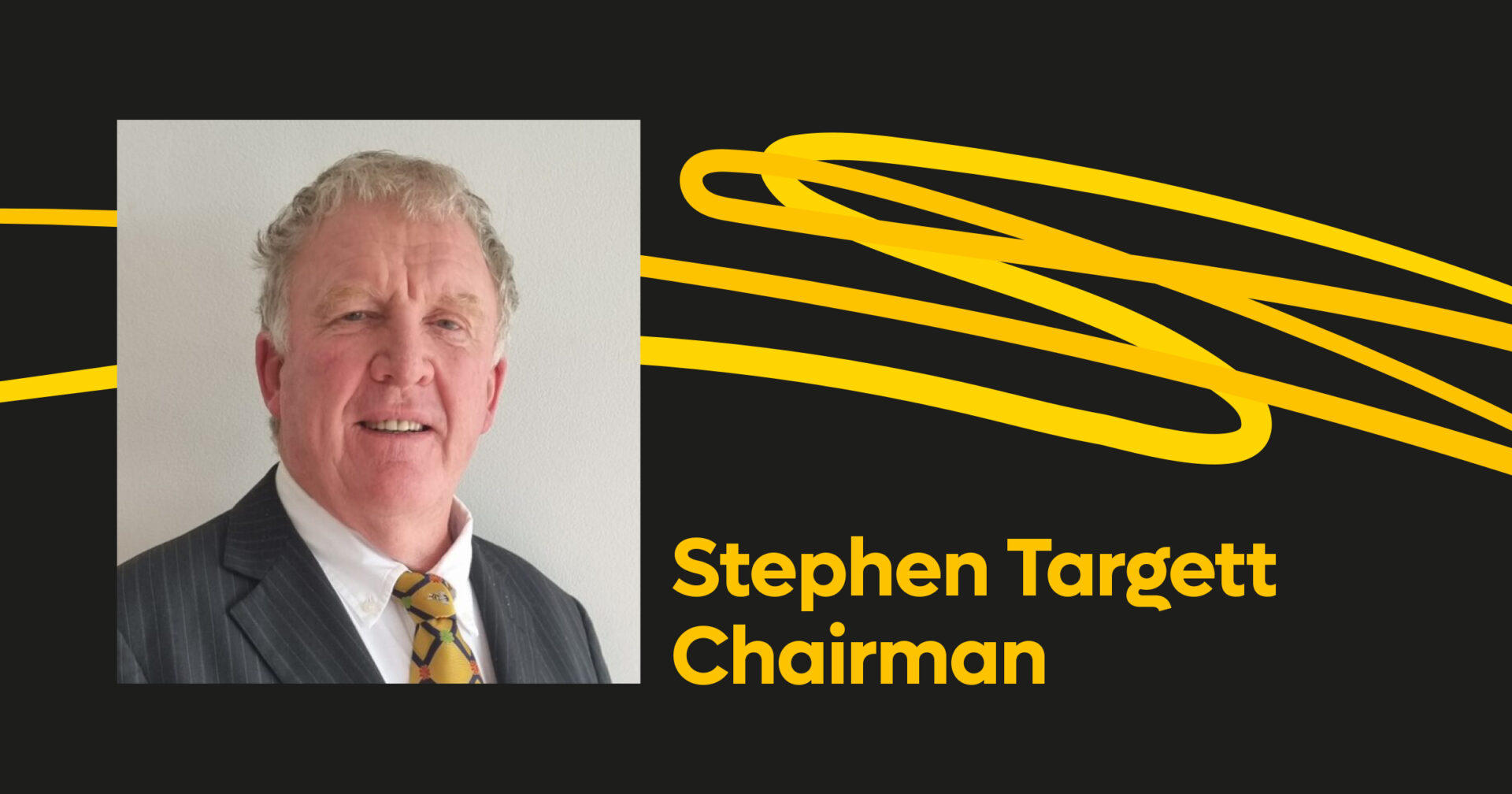
The AHBIC team has provided continuous work for our wonderful industry over the last year and we will be taking a short break as we head into the festive season.
A member body and an executive meeting plus a Congress subcommittee meeting have recently taken place.
In today’s environment holding a Congress is very expensive and without full industry support, will place financial pressure on AHBIC. To manage the financial risks the Congress subcommittee have mapped key milestone dates which will allow us to monitor industry support and react with a stop/go date for late 2025. The AHBIC executive and AHBIC team are very aware of the financial pressure a lot of beekeeping businesses are currently under. We are also aware of the importance of showcasing the latest research and the practicalities of living with varroa in an Australian environment.
If you know of anyone (local or international) who may be a great speaker for Congress in 2026 please inform myself or the CEO.
Please take time out and enjoy the festive season with family and friends. If you are on the road be patient and drive safely.
Wishing everyone a Merry Christmas and a Fabulous New Year.
Stephen Targett
Chair

AHBIC continues to work through the industry priorities. Over the last month we have met with areas of the federal department to progress the imported honey issue and export markets and meeting with a separate area to discuss varroa treatment registrations. I also attended the Plant Health Australia AGM in Canberra at the end of November.
Plant Health Australia AGM and Deed meetings
At the end of November PHA held their AGM and associated deed meetings in Canberra. These meetings are attended by all the signatories to the Emergency Plant Pest Response deed (EPPRD). Meetings included the Plant Industry Forum (coalition of industry partners, ex government) where we discussed common biosecurity challenges and challenges with the EPPRD. These fruitful discussions included guest speakers from the department and provided a candied opportunity to speak directly to the heads of department.
The AGM presented the achievements from PHA over last 12 months and the forecast for coming 12 months. Members were asked to vote on a new member application from the Protected Cropping Association which was rejected by members.
Transition to Management Program
AHBIC continues to work daily in the transition to management program specifically to deliver the AHBIC allocated projects, Extension and Engagement, Coloss, Code of Practice and Queen bee breeding Workshops. All activities are underway and as we have details to share, we will continue to provide industry through our updates. Our Varroa Coordinator, Bianca, also continues to coordinate the national extension and engagement activity within the T2M program which involves over 30 staff embedded in jurisdictions across the country. The VDO are extending T2M resources direct to beekeepers, so far they have reached over 9000 beekeepers and their valuable contribution to industry is overseen by Bianca through regular meetings for guidance, key performance check-ins and national team support but also working through some legacy pieces for beekeeper information post T2M. Find a VDO near you via the VDO page on the national website: https://www.varroa.org.au/vdo
Code of Practice Revision
As part of the transition to management program we are updating the national Biosecurity Code of Practice (CoP). The CoP has been circulated to industry and jurisdictions with feedback incorporated. Within that feedback a material change of reducing the part C threshold from 50 to 5 hives was proposed so we decided to go back out to consultation. Feedback from the second round has been consolidated and a third and final draft has again been circulated to industry and jurisdictions.
Whilst there was some support for the threshold reduction there was a lack of support from the governments and the recreational sector. Overwhelmingly the feedback suggested a compromise of 20 or more as the threshold. This suggested amendment has been included in the third draft circulated.
Emergency Plant Pest Response Fund
The objection period for the changes to the EPPR levy closes on the 18th December after which time the feedback will be reviewed, any changes will be made and the minister will be notified. This will conclude the formal process from AHBIC and it will be then up to the Minister to approve the changes. If approved these changes will come into effect from July 1 2025.
Federal Department of Agriculture (DAFF)
We continue to meet monthly with the importation unit of the department to ensure we continue to progress the issues around imported honey. The department has been very receptive to working with AHBIC to improve the situation. AHBIC is in the process of planning a department workshop in March where we can drill down on the issues and identify areas in which the department can further assist industry.
We also continue to be in close contact with the export section of DAFF to ensure we continue to find and develop new export destinations for our honey. This includes hosting international auditors with a delegation from Vietnam arriving in February to audit some facilities. This will be a great opportunity for our industry to showcase to the Vietnam authorities the high standards to which we operate.
The Month Ahead
Christmas is less than a week away at the time of writing and I wish all a very merry and safe Christmas and new year period, hopefully you can enjoy some time off with your family and friends. The AHBIC team will be taking some time off over the Christmas and new year period as we recharge for what will another big year for the industry and AHBIC.
Danny LeFeuvre
CEO
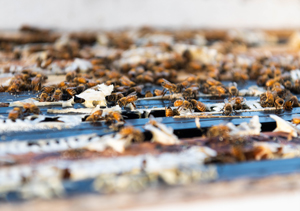
AHBIC recommends the details listed in our Varroa Chemical Treatment Table are read in conjunction with this article, especially the requirement for each of the current range of chemicals clearly noting if honey supers are permitted to be on or off while chemicals are being applied to the hive.
A withholding period is the minimum length of time that must elapse between the last application of a varroa treatment and the harvest, sale or use of honey or wax from a hive to which the chemical was applied. Withholding periods (WHPs) are used to ensure compliance with domestic maximum residue limits (MRLs).
These maximum residue limits are set in Australia and overseas markets to ensure that our agricultural products are safe to eat. It is extremely important to ensure withholding periods are adhered to when treating honeybee hives for varroa .
A withholding period, in relation to the use of a permitted or registered product, means the minimum period that needs to pass between:
(a) the last use of the chemical product before a super can be placed on for a honey crop or other product of the hive AND
(b) the physical harvesting of the honey crop or hive product for human consumption.
Adhering to the product labels including the listed withholding periods will ensure that the MRL will not be exceeded.
Withholding periods are based on how quickly any residues breakdown. Always make sure you follow the permit then the label, use the recommended dose (for hive size) and the recommended dose frequency. Overdosing can lead to excess residues. This can endanger human health and the reputation of Australia’s beekeeping businesses, products and domestic and export markets.
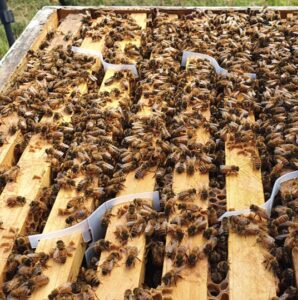
In general –
It’s important to note that not all treatments are the same, including when it comes to withholding periods. Products with the same mode of action and chemical class may have differences to withholding periods which beekeepers must be aware of and adhere to.
Checking the WHP and understanding the requirements considering the colony phase and the purpose of your beekeeping can be a game changer when it comes to treating for varroa.
For example:
AHBIC has had some fantastic support from the Export Council of Australia over recent months. Participating in an Export Ready Workshop tailored for the honey bee industry in Australia.
We invite beekeepers to anonymously share your perspective on data and technology, through a short online assessment.
This initiative by CSIRO is supported by the Export Council of Australia. By completing the assessment, you can evaluate your current traceability capability and guide your export strategy.
The results generated can also help identify industry gaps to inform future initiatives, including assistance for honey producers.
Being able to verify provenance is important when positioning your offering in the premium market segment. Discerning consumers are increasingly demanding to know the origins of their products, and value the brand story. Please complete the assessment to be eligible for a free module through the Export Council of Australia on a topic of your choice including Reviewing Your Offer for International Markets, Market Research & Entry Strategies, or Export Marketing Plan.
You can view the full module list and provide your details here: https://forms.office.com/r/fXY5RhhQ5Y
If you have any questions, please contact info@export.org.au.
Tropilaelaps mercedesae(Tropi mites) mites are a growing concern for beekeepers around the world. We have included some resources from Project Apis m. and Honeybeepests.org to share what some international researchers are currently finding and publishing regarding this parasitic mite of the honeybee. Thankfully Tropi is not yet present in North America or Australia but the information below is a great insight to the risk Tropi poses to our industry worldwide.
A short clip with some valuable insights from researchers and beekeepers on the risks associated with tropi mites on established honeybee industry in North America, learnings from Thailand beekeepers and our need to be vigilant!
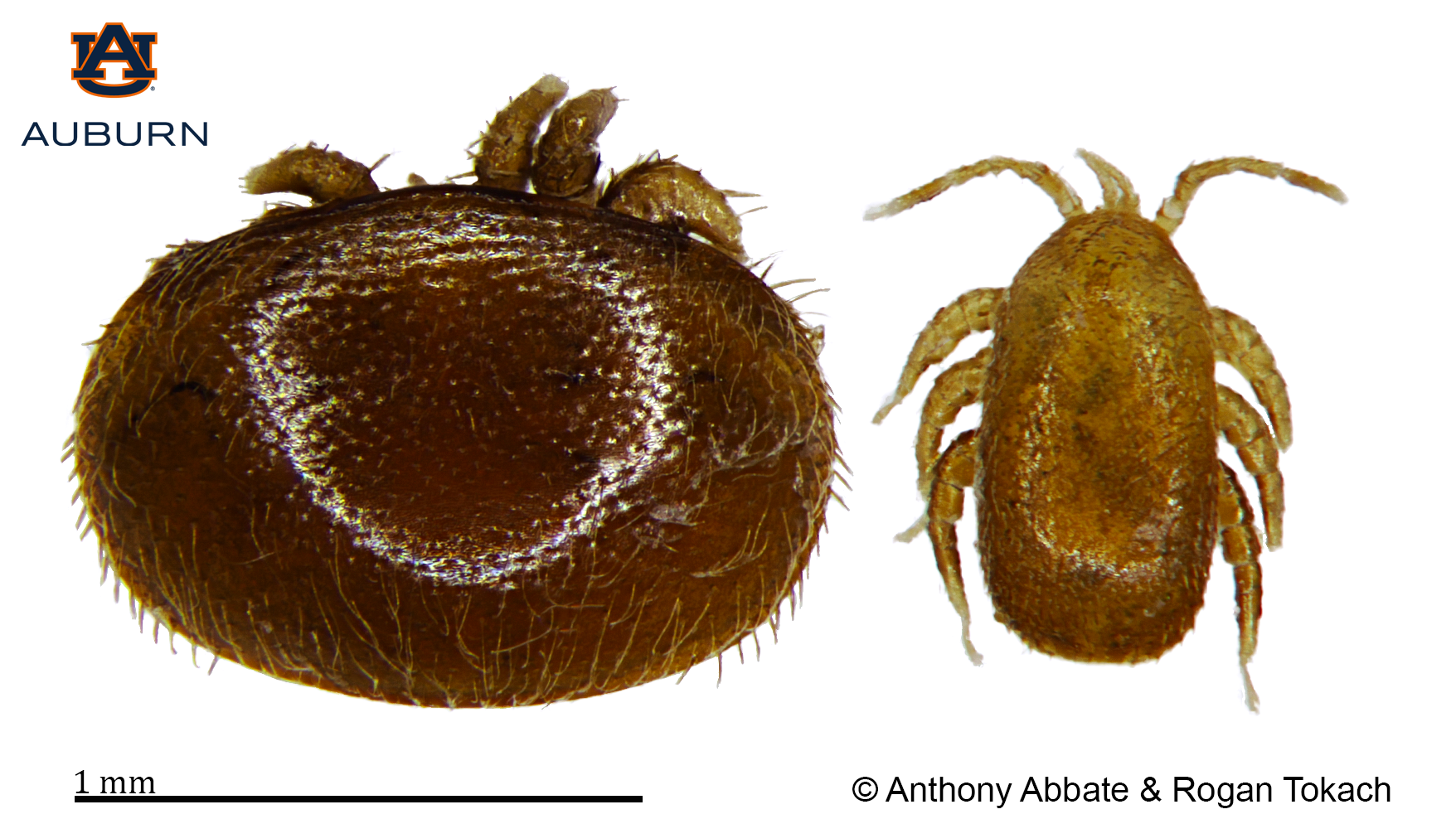
Varroa and Tropilaelaps (image credit Anthony Abbate & Rogan Tokach Auburn University – From the www.honeybeepests.org website
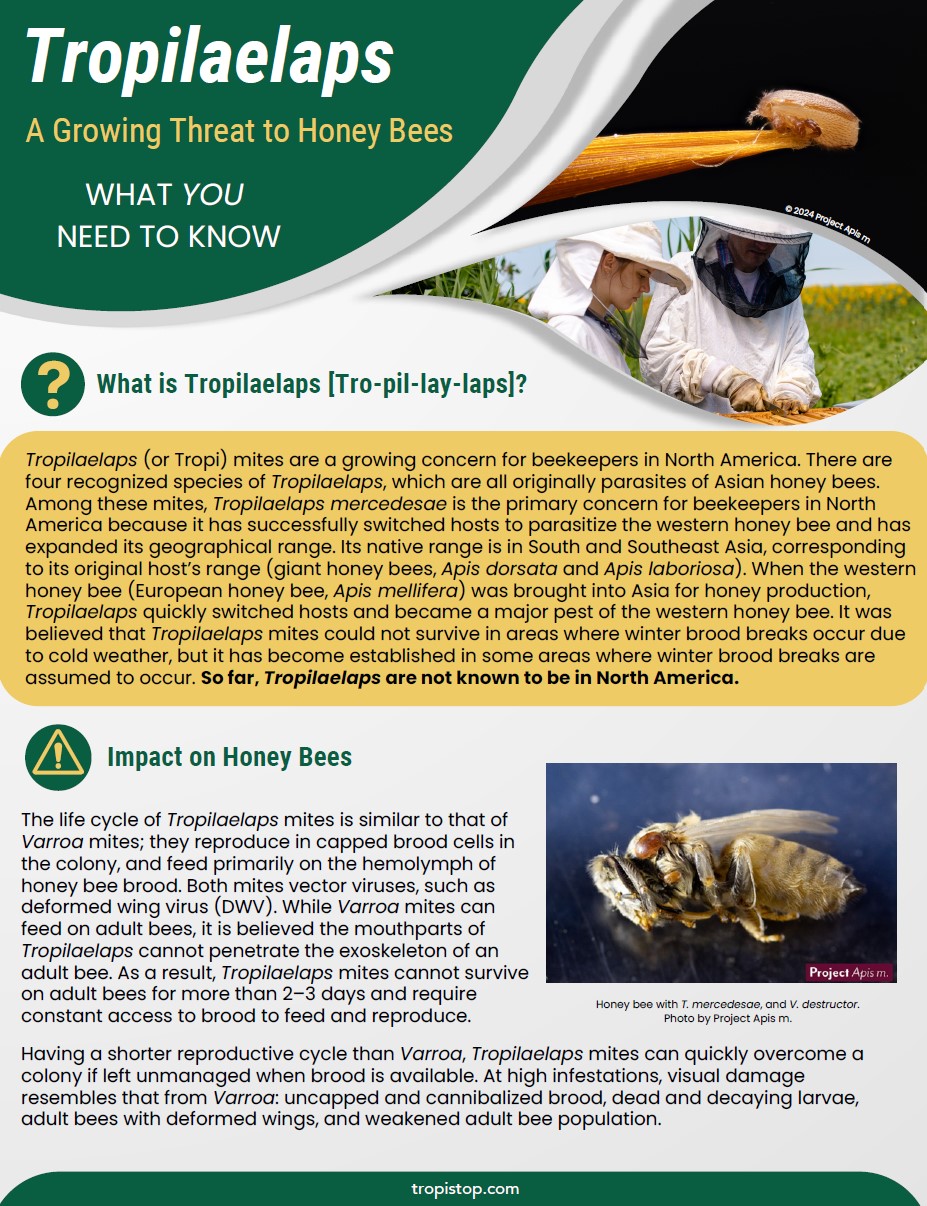
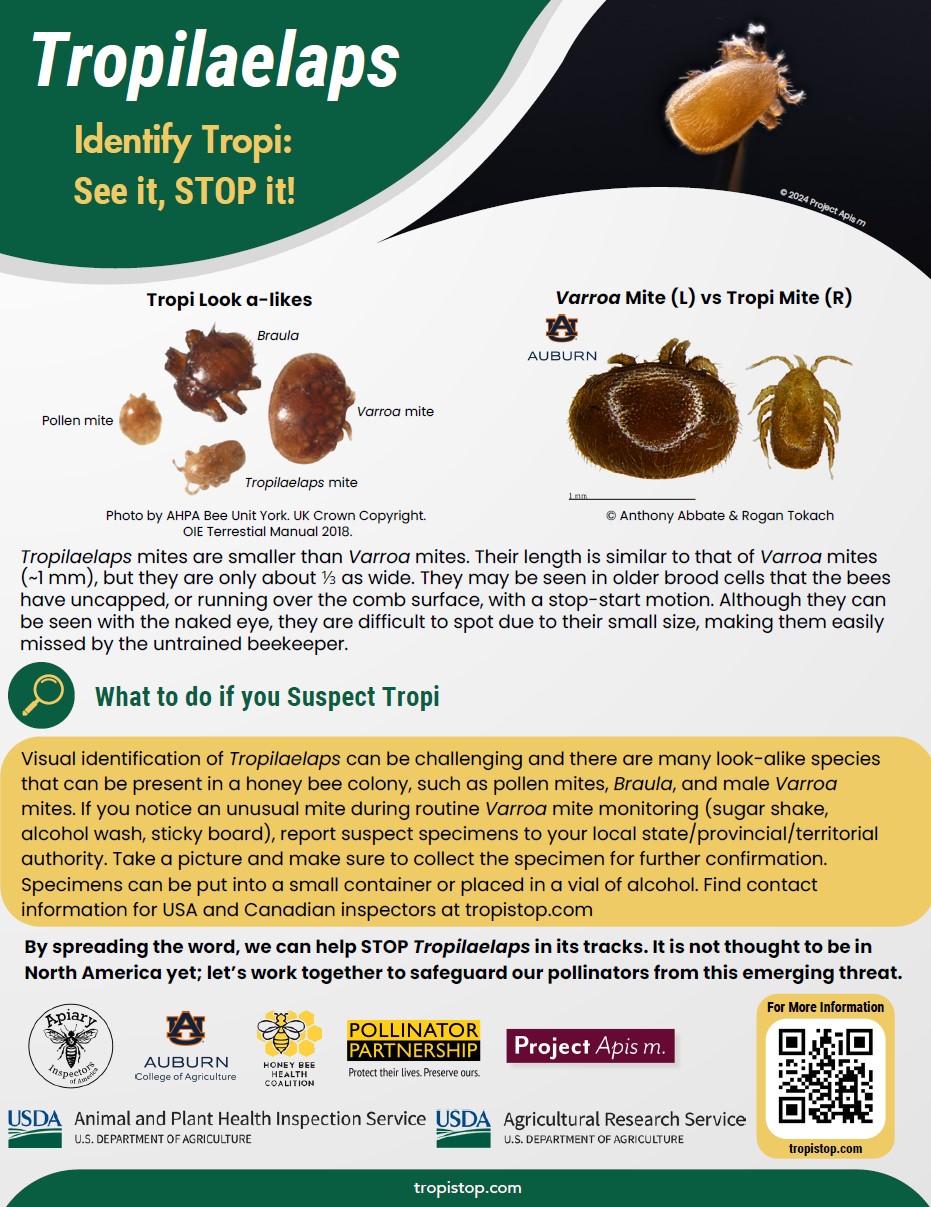
These resources have been shared directly from the Project Apis m. website with credit and without alteration.
Project Apis m. vision statement: Maximizing beekeepers ability for success. Leading to healthy foods, more honey production and secure pollination and food supply!
AgriFutures Australia is committed to fostering innovation in agriculture by helping our levy payers and the broader agricultural workforce by investing in leadership, capacity, skills development programs, and Australian agricultural scholarships.

AHBIC encourages leaders from our Member bodies and those willing to upskill across a number of leadership and governance programs to read further.
Opportunities such as:
![]()
Click Here to go to the Webpage!
Sheridan Ingold
Manager, Capacity Building
Email: sheridan.ingold@agrifutures.com.au
Phone: 0438 921 421
Emily Jones
Coordinator, Capacity Building and evokeAG
Email: emily.jones@agrifutures.com.au
Phone: 0455 980 310
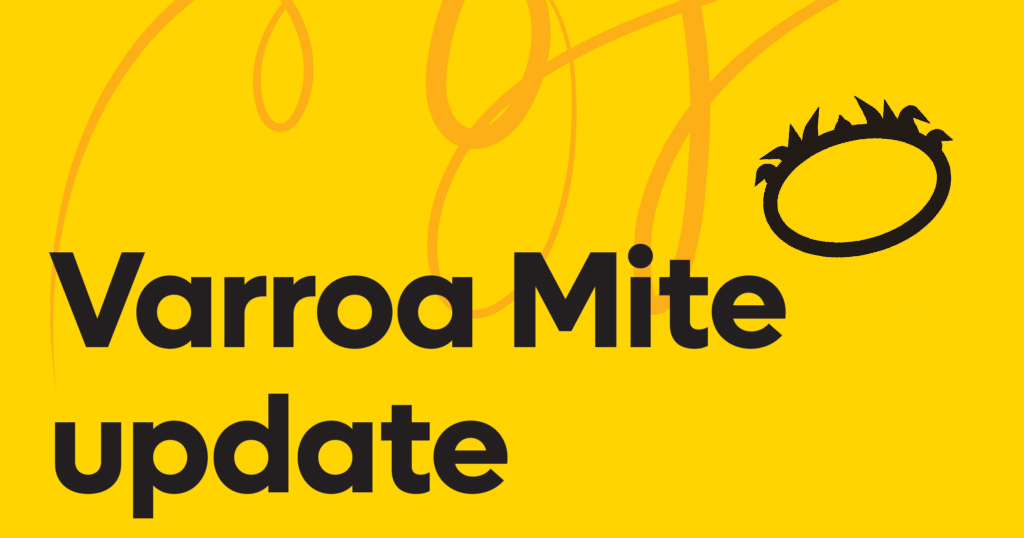
All state peak bodies and jurisdictions have to date received two drafts of the proposed changes to the Code of Practice. AHBICs consultant Michael Clarke has collated the feedback and made required amendments, with a final document being circulated that represents the vast majority of the industries expectations. More information on this can be found within the CEO December Update as part of the latest newsletter. The biosecurity Manual has completed circulation and will be forwarded shortly to meet the final requirements via the T2M and national biosecurity networks. All documents will be shared widely post completion.
All jurisdictions have now got VDO onboarded and actively working with beekeepers in each state, AHBIC overseas and provides guidance for all 35 VDO and their coordinators across the country. The VDOs have been extremely busy engaging with beekeepers, groups and clubs, making sure to reach their key performance targets covering numbers of engagements, regional distribution and association visits. Between March and 17 December 2024 the VDOs have engaged with over 9000 beekeepers across the country. The below map showing the regional distribution to date.
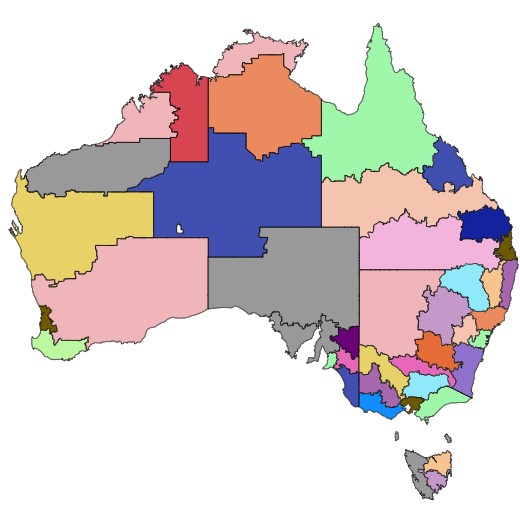
Contact a VDO for hands-on, face-to-face varroa management support, visit the team here: https://www.varroa.org.au/vdo
A team of dedicated people have successfully commenced work on the Australian Coloss Survey project. The project is managed via the AgriFutures Honey & Pollination Panel, but is funded and deliverable under the T2M via AHBIC. It is hoped that in the new year, the Coloss project will launch their dedicated website and begin collaborating directly with industry as the numerous stages begin to take shape.
Early in February 2025, AHBIC will be consulting with the queen bee breeding sector of industry. It is expected these planning meetings will assist in decisions relating to the formulation of queen bee breeding with varroa, sector specific content, delivery locations and a process forward to carry out the activity mid-2025.
Varroa management training workshops have rolled out across 76 locations around the country in 2024 and will resume from February 2025, see the website to register for a workshop across WA, VIC and QLD in the new year: https://www.varroa.org.au/training. Dr Nadine Chapman, Education Coordinator T2M, has also re-launched the Varroa Basic’s online training accessible to all beekeepers: https://www.varroa.org.au/online-training . The face-to-face workshops will be converted into a two-part online training resource available to beekeepers nationally from February 2025. AHBIC will update details of how to access these when they become available.
In addition to the varroa management training the education component is yet to finalise the resource and delivery of the required two-day farm business training for beekeepers, when this information comes to hand, AHBIC will be sure to share the details with industry.
A national virus baseline survey has commenced within the T2M to sample bees from across all jurisdictions. The samples will be tested for endemic and exotic virus’ to establish a national virus baseline and provide continued confidence that Australia remains free of deformed wing virus. Expressions of interest are open for Queensland and Victorian beekeepers whom wish to participate. Details of the project can be found here: https://www.varroa.org.au/baseline
Over recent weeks and months we have been gathering some details from domestic and international MRL testing laboratories and have summarised these on the AHBIC website.
Please follow this link to find out more on MRL testing: https://honeybee.org.au/industry-hub/maximum-residue-limits/
You can reach out to AHBIC via:
National Varroa Mite Coordinator
Bianca Giggins
0402 467 780
AHBIC, its employees, executive and consultants expressly disclaim all and any liability to any person in respect of anything, and the consequences of anything, done or omitted to be done in reliance, whether wholly, partly, upon the whole or any part of the contents of this industry update document.

Check out the recorded interview with Richard Rogers, Emtomologist.
Last but not least in the series of resources provided through collaboration between AgriFutures Australia and AHBIC.
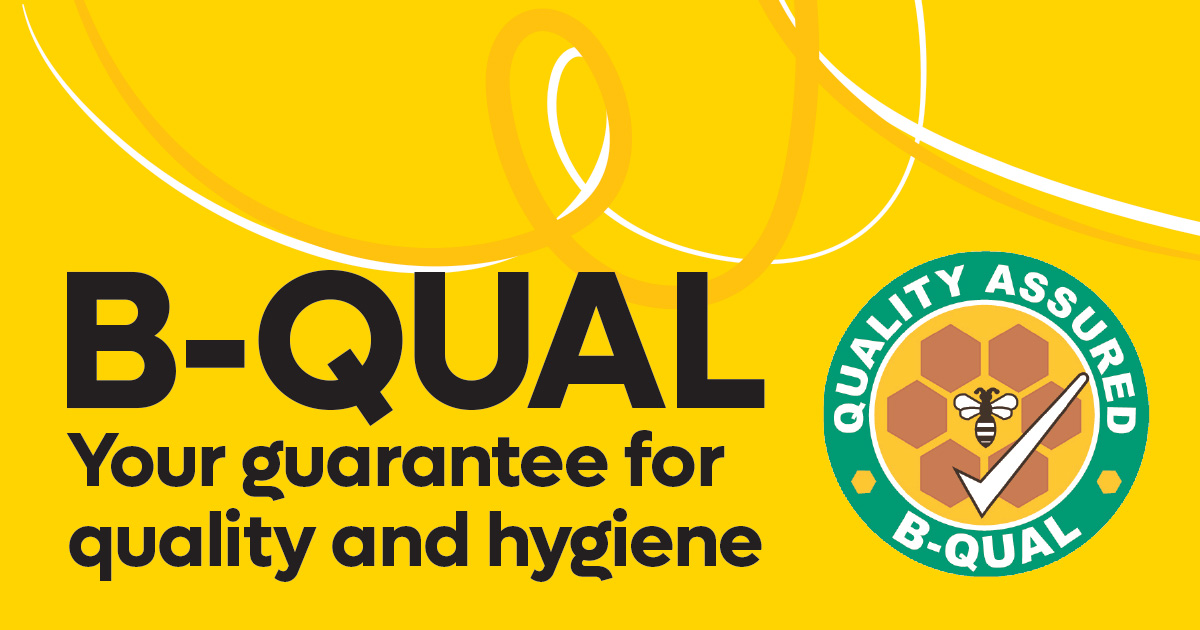
B-QUAL is an Industry Owned Quality Assurance System for Australian beekeepers.
How does B-QUAL certification benefit my business?
B-QUAL Certification also enables an enterprise to market its product under the B-QUAL logo to show that it meets the B-QUAL Industry Standards.
Complete your training at home at your own pace.
For more information and to obtain a Certification Information Pack, contact the B-QUAL Certification team.
www.bqual.com.au
B-QUAL Pty Ltd
Phone 07 49949820
Email: admin@bqual.com.au
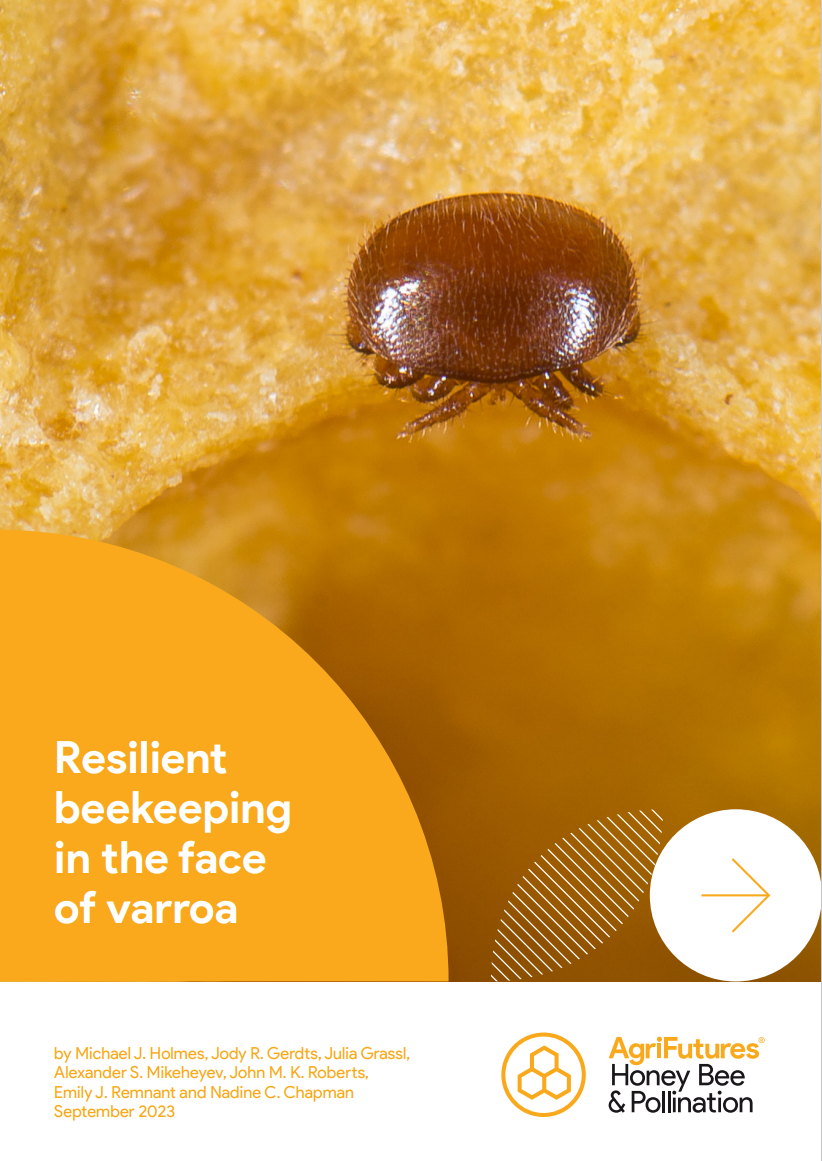
To support the industry through the transition to management phase, AgriFutures Australia has invested in research to understand what we know and don’t know about varroa, and how it may react under Australian conditions.
The project involved a literature review, a survey and interviews with experts to develop a proposed national strategy for the management of varroa and to identify knowledge gaps and the research required to help beekeepers live with varroa.
AHBIC believes this publication is a valuable starting point in Australia’s transition to management of varroa.